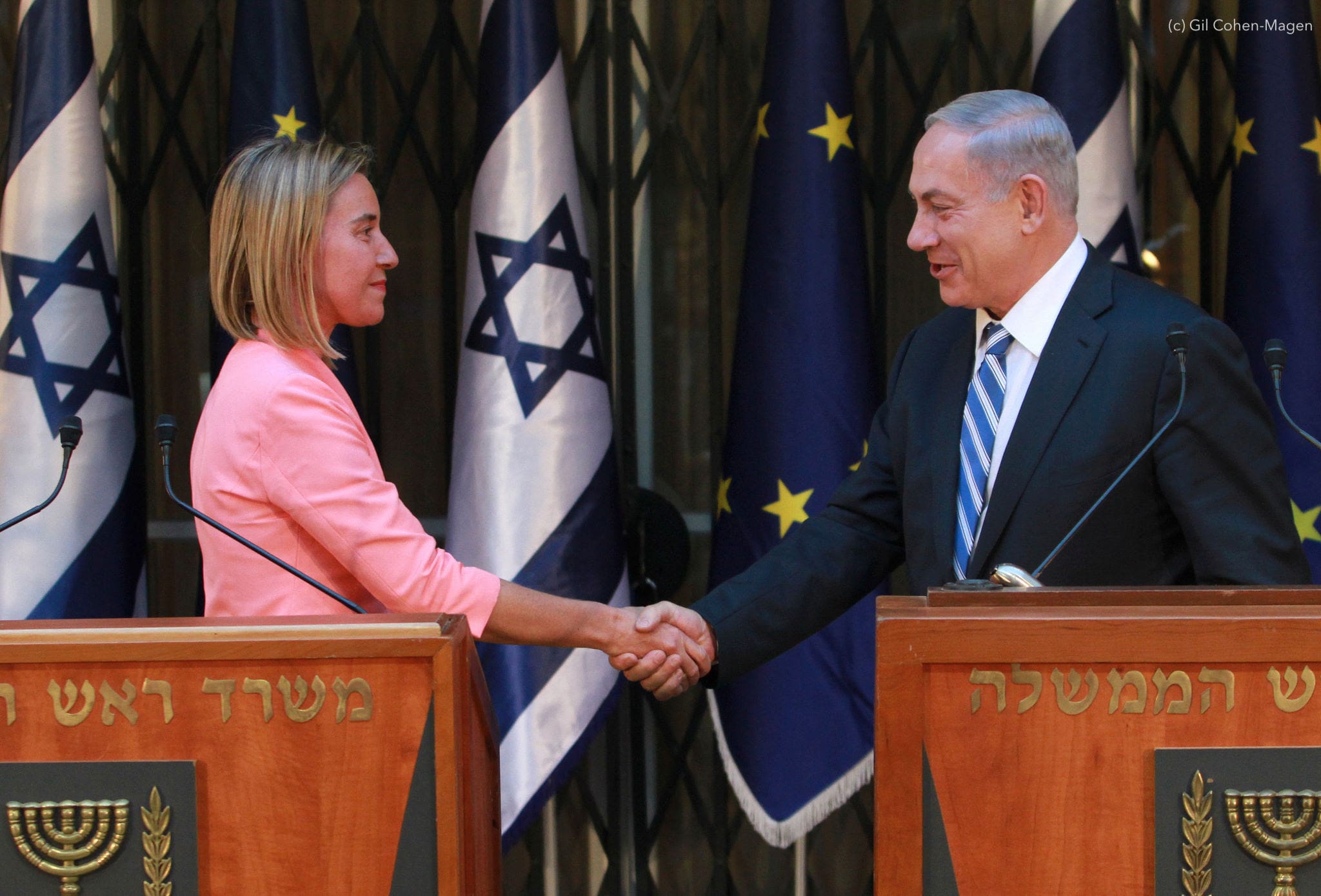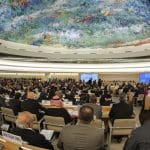
Executive Summary
The US embassy move from Tel Aviv to Jerusalem in May 2018 set a dangerous precedent that both encouraged Israel to continue its annexation of Palestinian land and invited third states to join in violating their obligations under international law. Although condemned by many states, others followed suit and opened embassies in Jerusalem. Normalization was relatively swift.
The international community has long been impotent with regard to securing Palestinian legal and historic rights in both East and West Jerusalem. These include the right of return for refugees, restitution of property, and full political rights, as well as, of course, freedom from occupation together with the rest of the West Bank and the Gaza Strip.
Indeed, while the UN and much of the international community have consistently condemned Israel’s 1967 annexation of East Jerusalem, Israel has continued to cement its control over the city on the ground and through legislation. The recent normalization of Israeli sovereignty over all of Jerusalem yet again sends a message that Israel faces no consequences for annexing Palestinian land and for violating international law.
The EU has taken a clear discursive line on Jerusalem, keeping with both international law and international consensus. However, its meek responses to Israeli violations characterize third states’ lack of will to uphold their responsibilities and challenge Israel.
The abnegation of third state obligations is only part of the story; the EU is complicit in Israeli violations through myriad trade and funding links, such as through Horizon 2020, a research and innovation program with an 80 billion euro budget.
Schisms within the EU regarding the issue of Palestine present challenges. Poland and Hungary, for instance, have authoritarian governments that are closely allied with Israel. These internal EU dynamics have prevented any meaningful action with regard to Palestine.
Despite these issues and the global political shift to the right, there remains potential for the EU to pressure Israel. Strong European popular support for Palestinian rights and sovereignty, as well as the fact that the EU is premised on international law and human rights, renders it one of the few remaining spaces to pursue Palestinian human rights in the international political arena.
Policy recommendations:
1. The EU should encourage its member states to issue statements condemning the US embassy move.
2. The High Representative of the Union for Foreign Affairs and Security should reiterate that EU member states must uphold their third state responsibilities to not aid Israeli war crimes or US violations of international law.
3. The EU must reassess its Horizon 2020 guidelines, which are inherently complicit in Israel war crimes.
4. EU member states must enforce non-recognition of Israeli sovereignty over Jerusalem.
5. Following the precedence of eight EU countries last year who sought compensation from Israel for the confiscation of EU-funded solar panels from a Bedouin community, the EU and EU member states independently should take legal action and build cases for financial compensation from Israel when it destroys such construction or projects that they fund.
6. EU member states must assert Palestinian legal and historic rights in both East and West Jerusalem.
Overview
The US embassy move from Tel Aviv to Jerusalem in May 2018 set a dangerous precedent that both encouraged Israel to continue its annexation and colonization of Palestinian land and invited third states to join in violating their obligations under international law. Although condemned by many states, others, including Guatemala and Paraguay, followed suit and opened embassies in Jerusalem. Normalization was relatively swift, with various states, including the United Kingdom (UK), announcing that they would attend meetings in the new US embassy.1
These latest political maneuverings follow a deteriorating trajectory for Palestinians in the city. The international community has long been impotent with regard to securing Palestinian legal and historic rights in both East and West Jerusalem. These include the right of return for refugees, restitution of property, and full political rights, as well as, of course, freedom from occupation together with the rest of the West Bank and the Gaza Strip.
This failure to go beyond rhetoric and statements of condemnation and to implement international law has allowed Israel to entrench its control over the Palestinian people and their land. The recent normalization of Israeli sovereignty over all of Jerusalem is particularly dangerous, as it yet again sends a message to Israel that it faces no consequences for annexing Palestinian land and, more generally, for violating international law.
The European Union (EU) took a clear position on the US embassy move, stating that it continues to uphold the international consensus on Jerusalem, which includes the refusal to locate diplomatic missions in Jerusalem until the city’s final status has been resolved. Individual EU states reiterated this stance; France, for instance, declared that the move contravened international law. However, the Czech Republic, Hungary, and Romania, all of whom attended the opening ceremony of the embassy, blocked a joint EU statement condemning the US move.
Despite this lack of unity in regard to Palestinian rights among EU member states, as well as the EU’s tendency to issue toothless statements condemning Israeli human rights violations, there is potential for the EU to hold Israel to account. Strong European popular support for Palestinian rights and sovereignty, as well as the fact that the EU is premised on international law and human rights, renders it one of the few remaining spaces to pursue Palestinian human rights in the international political arena.
This policy brief considers the status of Jerusalem, Israeli abuses in the city, and the EU’s track record of inaction. It concludes by offering ways the EU can change its trajectory by transcending rhetoric and inducing Israel to respect the rights of Jerusalem’s Palestinian inhabitants.
Seizure and Repression
The founding of the British Mandate of Palestine in 1923, as directed by the League of Nations, established a legal basis for Palestinian sovereignty. The mandate was to serve as a temporary arrangement that would lead to Palestinian self-determination. Yet in November 1947 the United Nations General Assembly (UNGA) passed Resolution 181, which recommended that the country be divided into an Arab state and a Jewish state. The former would be established in 44 percent of historic Palestine, despite the fact that Arab Palestinians composed of over two thirds of the population and owned the majority of the land. The resolution also proposed that Jerusalem become a “corpus separatum” under international administration.
The Jewish Agency accepted the plan, while the Palestinian leadership, recognizing its injustice, rejected it. Violence resumed around the country and led to the Zionist forces’ eventual victory and the establishment of the state of Israel in May 1948, in 78 percent of historic Palestine.
In 1967, Israel occupied the Golan Heights, the Gaza Strip, and the West Bank. It annexed East Jerusalem, positioning the move as a reunification of the city. The international community condemned the unlawful act, and the UNGA passed a unanimous resolution calling for Israel to rescind all measures carried out during the takeover. Later that year, the UN Security Council also unanimously passed Resolution 242, which called for a “just and lasting peace” that would require Israel to withdraw from occupied territory. In May of 1968, the Council passed Resolution 252, which called for Israel to cancel all of its activities in Jerusalem and to “desist from taking any further action which tends to change the status” of the city.
European popular support for Palestine renders the EU one of the few remaining spaces to pursue Palestinian human rights internationally Share on XThe UN and much of the international community have consistently condemned the annexation of Jerusalem and occupation of the 1967 territories. Yet Israel has continued to cement its control over the city on the ground and through legislation. In 1967, the Israeli government expanded the municipality of Jerusalem and the application of its legal system to that territory. The 1980 Jerusalem Law then served as a declaration of Israeli sovereignty over the entire city, stating that a “complete and united Jerusalem is the capital of Israel” and incorporating the illegal unification into Israel’s Basic Law, which effectively functions as the state’s constitution.2
Israel has systematically destroyed Palestinian economic, political, cultural, and social life in Jerusalem. It has stifled the tourism sector, suffocated trade in the Old City, and marginalized the provision of services, leaving the Palestinian economy on the brink of collapse. The construction of the annexation wall, which began in 2002 and is now around 712 km long, has exacerbated the situation by isolating East Jerusalem from the rest of the West Bank, resulting in a decline of Palestinian trade and commerce in the city.
In 2001, the Israeli police raided and shut down the only PLO institution in Jerusalem, the Orient House. This building not only housed research archives, photographs, and important diplomatic documents, but was also the sole Palestinian political representation in the city and was recognized as such by the international parties at the Madrid Peace Conference in 1991. Other Palestinian cultural institutions have faced attack over the years, including the Palestinian national theater, Al-Hakawati, which has been shut down on several occasions.
Most Palestinians in East Jerusalem are classified as permanent residents, a designation that confers upon them fewer rights than their Jewish Israeli counterparts, who enjoy citizenship. Permanent residency entitles Palestinians to some social benefits such as health insurance and the ability to vote in municipal elections, but it does not allow access to full citizenship rights, including the right to vote in national elections. Palestinians with East Jerusalem residency are also limited to living within Jerusalem due to the “center of life” policy, which dictates that permanent residents must be able to prove that they live in Jerusalem or risk losing their residency. Since 1967, Israel has revoked over 14,000 Jerusalem residencies from Palestinians.
Israel practices a discriminative planning policy that routinely denies Palestinians permits to build as well as land to legally build on. In the face of a growing population and limited housing, Palestinians have no choice but to build without Israeli-issued permits. Israel considers these homes illegal despite the fact that it has no jurisdiction within occupied territory on which to make such an assessment. Yet since 1967 Israeli authorities have demolished 5,000 Palestinian homes. Today, a third of all Palestinians homes in East Jerusalem, housing over 100,000 people, are at risk of being demolished.
At particular risk are rural Bedouin communities on the outskirts of Jerusalem, whose communities lie within an area Israel has dubbed E1, some of which fall in Area C of the West Bank. This strategic land corridor running between Jerusalem and the illegal settlement of Ma’ale Adumim cuts the West Bank into northern and southern halves. Israel plans to build an urban settlement block that would expand Greater Jerusalem, linking the city to nearby settlements.
Khan al-Ahmar, home to 173 people, is one of the many communities facing demolition. Israeli authorities refused to provide the village with basic infrastructure and services such as water and electricity. In 2009, Italy, Belgium, and the EU funded a school built to serve the children of Khan al Ahmar and surrounding Palestinian Bedouin communities. The destruction of this community is imminent, particularly now that Israel’s deadline for the residents to destroy their own structures has passed. The EU High Representative, Federica Mogherini, warned that the “consequences of a demolition of this community and the displacement of its residents, including children, against their will, would be very serious.”
Inaction and Complicity
Statements such as the one above by Mogherini is consistent with the EU practice of condemning Israeli violations of international law in Jerusalem. The EU has taken a clear discursive line on Jerusalem, keeping with both international law and international consensus. On the day of the US embassy move, Mogherini stated:
The EU remains firmly committed to continue working with both parties and with its partners in the international community towards a resumption of meaningful negotiations aimed at a two-state solution, based on the 4 June 1967 lines and with Jerusalem as capital of both. The European Union has a clear, consolidated position on Jerusalem, which was reaffirmed in numerous Foreign Affairs Council conclusions. The EU will continue to respect the international consensus on Jerusalem embodied in, inter alia, UN Security Council Resolution 478, including on the location of diplomatic representations until the final status of Jerusalem is resolved.
Yet such statements have not yielded any action that would hold Israel to account. Similarly, following a 2017 Israeli government announcement of thousands of new settlement units across the West Bank, the EU issued a statement requesting “clarifications” and asked Israel to “reconsider these decisions.” This meek response characterizes third states’ lack of will to uphold their responsibilities and challenge Israel’s violations of international law. In the meantime, Palestinians continue to be forced out of Jerusalem and denied their fundamental rights.
The EU is complicit in Israeli violations through myriad trade and funding links Share on XThe abnegation of third state obligations is only part of the story; the EU is complicit in Israeli violations through myriad trade and funding links. Since 1995, various Israeli initiatives have been allowed to access EU research funds. More recently this has included resources from Horizon 2020, a research and innovation program with an 80 billion euro budget. Israel is the only non-European country to fully participate in Horizon 2020, which now funds over 200 Israeli projects, including with the companies Elbit Systems and Israeli Aerospace Industries, which have been accused of complicity in Israeli war crimes. Although the funds are purportedly only for projects with civilian applications, the “dual use” clause allows them to finance items that could also have military functions, such as drones and robotics. In other words, Israeli companies can access EU funding for a “civilian” project and later develop it for the military sector. This is highly problematic, particularly because Israel is at the vanguard of military technologies and is guilty of war crimes against the Palestinian people.
Horizon 2020 also bolsters the legitimacy of Israel’s annexation of East Jerusalem. The Israeli Science Ministry and the Israeli Antiquities Authority, which benefit from Horizon 2020 funds, are located in East Jerusalem. Despite their location, the EU stressed in 2013 that this does “not obstruct” cooperation. Similarly, the Hebrew University in East Jerusalem, which is expanding onto land occupied in 1967 – namely the Palestinian village of Issawiyeh – is also benefiting from EU funding. By allowing Israel to access this funding while operating on illegally annexed land not only contradicts international law but also challenges the EU’s stated principles and stance when it comes to Jerusalem.
The EU: Limitations and Opportunities
The US embassy move has accelerated and legitimized a process of de-Palestinianization of Jerusalem that began over seven decades ago. In the absence of concrete pressure, Israel will continue to violate the fundamental rights of the Palestinian people in Jerusalem and the rest of historic Palestine, with the full support and encouragement of the Donald Trump administration as well as its far-right allies within Europe and in Latin America.
Despite the inaction described above and the global political shift to the right, there remains potential for the EU to pressure Israel and pursue Palestinian human rights. This is due to strong European popular support for Palestinian rights and sovereignty that has allowed grassroots solidarity networks to grow, as well as the fact that the EU is premised on international law and human rights, as stated in its strategic framework:
The European Union is founded on a shared determination to promote peace and stability and to build a world founded on respect for human rights, democracy and the rule of law. The EU will continue to throw its full weight behind advocates of liberty, democracy and human rights throughout the world.
The EU is capable of holding Israel to account through the above-mentioned economic, cultural and scientific cooperation by leveraging these ties to send a clear message to Israel that its behavior will no longer be tolerated. In 2015 the EU attempted to send such a message, but the results were at best mixed.
The EU issued new guidelines for the labeling of products from illegal Israeli settlements (including those in East Jerusalem), emphasizing the EU’s commitment to the 1967 borders. These guidelines are part of an effort dubbed “differentiation,” which seeks to enforce the exclusion of settlement products or settlement-related activities from bilateral relations between the EU and Israel.
Many of those working for Palestinian rights in the EU area consider differentiation and the labeling guidelines a big win, and both morally right and legally consistent. However, not only is there a lack of implementation on a local retail level, but the labeling of settlement products also relegates the issue to independent consumer choice rather than a third state obligation. It thus falls short of meeting EU obligations under international law and of achieving Palestinian fundamental rights.
This stands in contrast to an Irish bill known as the “Control of Economic Activity (Occupied Territories)” bill, which was passed by the Irish Seanad (the parliamentary upper house) in July 2018. It calls for a total ban on the import and sale of illegal settlement products. Although it must pass through several more legislative procedures before becoming law, the bill is an example of an EU member state upholding its domestic law and obligations under international law. It holds Israel to account for profiteering from the 1967 occupation and the theft of land and resources. If the bill becomes law, it is likely to have economic repercussions on Israel and would provide an example to other EU member states wanting to act on an individual and collective level.
Internal EU schisms have prevented any meaningful action with regard to Palestine Share on XSchisms within the EU regarding the issue of Palestine present challenges. Poland and Hungary, for instance, have authoritarian governments that are closely allied with Israel, while others, including France, Germany, and the UK, have avoided putting pressure on Israel in favor of maintaining good diplomatic relations.
These internal EU dynamics have prevented any meaningful action with regard to Palestine. Indeed, few member states are willing to subordinate their national policy to EU policy. Rather, EU foreign policies run parallel to individual state policies, with the latter taking precedence. This lack of action demonstrates the gap between rhetoric and reality. The EU does not lack policy or legal arguments to challenge Israel on its annexation of Jerusalem, yet it does lack the political will to enact concrete punitive measures.
These limitations stem not only from the state membership system and the lack of cohesion with regard to foreign policy, but also from the EU’s soft power approach in a global condition of increasing hard power. Yet there are some possibilities for change in this pattern of inaction.
With this in mind, the following policy recommendations are a starting point for the EU to uphold its commitments to the Palestinian people – and to the international legal framework it seeks to uphold.
Immediate Steps for EU Action
1. In light of the blocked joint statement, the EU should encourage its 28 member states to issue independent statements condemning the US embassy move and highlighting the detrimental effect it will have on achieving Palestinian sovereignty and basic human rights.
2. The High Representative of the Union for Foreign Affairs and Security should reiterate that EU member states must uphold their third state responsibilities to not aid or abet Israeli war crimes or US violations of international law. This includes stressing that member states should not attend diplomatic meetings or functions at the new US embassy.
3. The EU must reassess its Horizon 2020 guidelines, which are inherently complicit in Israel war crimes through the “dual use” clause. Additionally, it should insist that no Israeli body or institution based or operating in East Jerusalem has access to these funds.
4. The EU and its member states must enforce international non-recognition of Israeli sovereignty over Jerusalem and take a strong stance to ensure they are not implicated in Israeli or US violations of international law. This includes condemning European events held in Jerusalem such as the cycling race Giro d’Italia. Such events are an important part of Israel’s attempts to normalize its sovereignty over the city.
5. Following the precedence of eight EU countries last year who sought compensation from Israel for the confiscation of EU-funded solar panels from a Bedouin community, the EU and EU member states independently should take legal action and build cases for financial compensation from Israel when it destroys such construction or projects that they fund. A collective campaign to demand compensation could act as a deterrent to the immediate threat of demolition.
6. EU member states must also both collectively and independently assert Palestinian legal and historic rights in both East and West Jerusalem. It must support Palestinian resistance and attempts to reclaim sovereignty without depoliticizing them. An important step in this regard would be facilitating the return of PLO institutions to Jerusalem, such as Orient House, and supporting grassroots organization.
This brief is based on a paper written for the Heinrich Böll Stiftung entitled “The EU and Jerusalem: A Palestinian Perspective.”
- To read this piece in French, please click here. Al-Shabaka is grateful for the efforts by human rights advocates to translate its pieces, but is not responsible for any change in meaning.
- Although much of the international community divides the city between Palestinians and Israelis, it is important to note that this does not and cannot negate the rights of Palestinians in all of Jerusalem. A number of these rights are enshrined in UNGA Resolution 194 of 1948. Despite this affirmation of the Palestinian right to return and the right to property restitution or compensation, the international community, at the institutional level, has addressed Palestinian rights within the 1967 borders. International actors are thus not only failing to fulfill Palestinian rights within the material realm, but also in the discursive realm.
Yara Hawari is Al-Shabaka’s co-director. She previously served as the Palestine policy fellow and senior analyst. Yara completed her PhD in Middle East Politics at the University of Exeter, where she taught various undergraduate courses and continues to be an honorary research fellow. In addition to her academic work, which focused on indigenous studies and oral history, she is a frequent political commentator writing for various media outlets including The Guardian, Foreign Policy, and Al Jazeera English.















